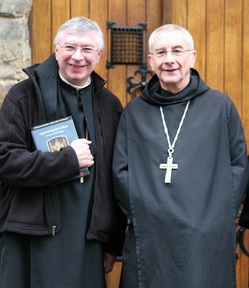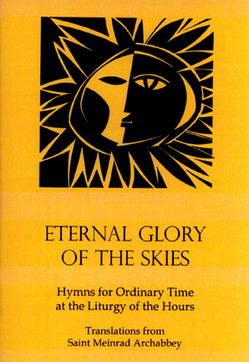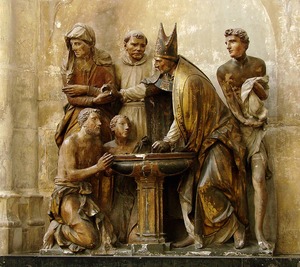
Frequently do I go to places where certain liturgical practices catch my attention because of the novelty of what is said and heard. We always need a deeper understanding, a profound appreciation for the prayer of the Church as expressed in the sacred Liturgy. Some will say that canon law, particularly liturgical law, is the bad side of the Good News. As Catholics we are part of a Church; as Catholics we are not independent of sacred Scripture, sacred Tradition and the sacred Magisterium; as Catholics we follow a guided companionship on a journey to a deeper communio with the Triune God. We are not Marlboro people; we are, in fact, sheep in flock called to the Holy Synaxis, to the holy in-gathering of a people in Christ, or simply, Church. We have a good shepherd in Jesus and in His successors, that is, the bishops, and we follow the teaching authority of the Christ and His vicars.
This is a long introduction to a question as whether or not priests of monastic communities ought to name the abbot in the Eucharistic Prayer. There seems to be some confusion over this seemingly small, trite matter. It is not small, and it is not trite. We have an ecclesiology, and we have a liturgical practice that ought to be followed because we live our Catholic lives in communion with others. Abbots are minor prelates; they exercise their pastoral authority and power in their monastic community and not in a diocese, and by extension to the dependent priories. An abbot ought not employ the attitude of having a mitre and a crosier so that you can do whatever you'd like, whenever you'd like, etc.
Can a priest commemorate Abbot X (or even the abbess if in the context of a woman's monastery) along with the pope and the bishop in the Eucharistic Prayer at Mass?
The General Instruction of the Roman Missal gives four titles that may be named in the Eucharistic Prayer: "The Diocesan Bishop, or one who is equivalent to the Diocesan Bishop in law, must be mentioned by means of this formula: together with your servant N., our Pope, and N., our Bishop (or Vicar, Prelate, Prefect, Abbot)" (no. 149). Each of these offices are "equivalent to the Diocesan Bishop in law" by virtue of their appointment to act on behalf of the Supreme Pontiff within a particular area.





